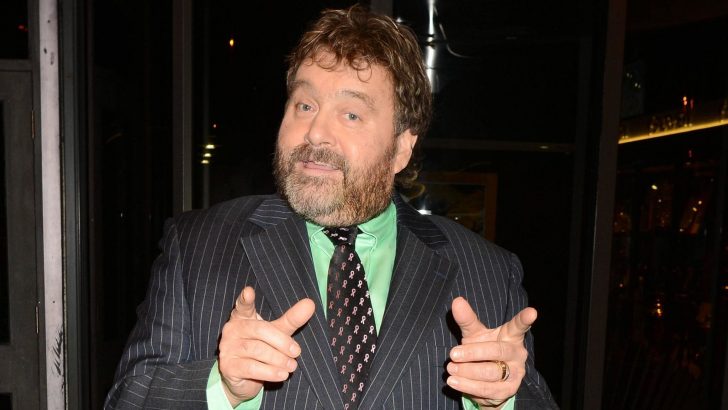Two funerals of Irishmen distinguished in their fields took place over the last week: one was a large popular gathering to mark the passing of the comedian Brendan Grace, who died aged 68. His funeral Mass was held in the heart of Dublin’s Liberties area, at the Church of Nicholas Myra in Francis Street.
The other was also a well-attended funeral Mass at the Church of the Holy Name in Ranelagh, following the death of the barrister and political commentator Noel Whelan, who had died aged 50.
At a time when I hear more about the expansion of “humanist” – that is, secular – funeral services, it’s interesting to note that the Catholic (and Christian) funeral is still what most people want.
Initially, it surprised me that Noel Whelan chose a Catholic funeral, since he was, in the public realm, heavily involved with supporting, and campaigning for, the same-sex marriage referendum, and for repealing the Eighth Amendment. In reading his well-informed political columns over the years in the Irish Times, his tone was generally secular.
A baptised person is entitled to a Christian funeral, and everyone is entitled to attend”
And yet, when I reflected on this a little more, I felt that I had made a superficial judgement and that we shouldn’t put people into boxes and stereotypes. Faith comes in many forms of expressions, and we shouldn’t judge the faith of others.
Nonetheless, there was some adverse comment on social media about some aspects of Mr Whelan’s church funeral: that the officiating priest, Fr Derek Smyth, had praised his campaigning work (and included Buddha in his allusions), and that Katherine Zappone, Minister for Children, had read a prayer described as non-Christian.
Many notables were present who are perceived to be hostile to faith values, such as Ellen O’Malley Dunlop of the Women’s Council of Ireland – which has excluded pro-life women from its ranks – and Colm O’Gorman of Amnesty International. One commentator felt scandalised by “same-sex activists bringing forward offerings”.
Well, a baptised person is entitled to a Christian funeral, and everyone is entitled to attend, no matter what they bring to it. A priest is entitled to emphasise a man’s work without it being a political statement. Moreover, Catholicism has always included 57 varieties, and those variations on the theme of Faith will appear in the form of a certain diversity.
Publicity
Indeed, when those publicly associated with a secularising viewpoint come to the church to pay their respects at a Christian funeral, they are submitting, by that very action, to a greater power – faith – and acknowledging its formative role in the life of an individual, his family, and the context of his society.
“Ar dheis Dé go raibh a anam dílis,” as it was written in Noel Whelan’s death notice.
***
The jewels in our crown we overlook
There is a huge revival, all over the Christian world, in architectural history – and architectural ruins – and places like Roscommon Abbey could make a lot more of their heritage sites.
The ruined Dominican Abbey, in Roscommon town, bears a modest, slightly dusty-looking notice at the entrance to the site, saying that this former priory was founded by Felim O’Conor, the King of Connacht, in 1253, and consecrated in 1257. It was destroyed by fire in 1308, but rebuilt in 1453, plundered by the Anglo-Normans and dissolved under Tudor rule. Yet the last priest associated with the Abbey only died in the 1870s.
There’s evidently a much bigger story around all these events. (I didn’t even know there still was a King of Connacht after the Norman invasion of 1169.) We could learn much more about the Dominican order in Roscommon, and the wider association of abbeys extending to Clonmacnoise.
I appreciate that historic sites can be ‘over-hyped’ – complete with tourist boutique to flog more merchandise – and the tranquillity of Roscommon Abbey with its air of semi-neglect might seem more spiritual. All the same, the ruined abbeys of Ireland are an extraordinarily rich heritage resource, and much more attention could be paid to their existence, their story, the story of the people around them and the traditions of worship they represented.
***
Caledonia, we can see the changes
Drug-related deaths in Scotland have reached an all-time high – the Scottish media is calling Scotland “the drug capital of the world”. Deaths from a cocktail of drugs (heroin, methodone, benzodiazepines) and other drugs have doubled over the past eight years and will reach over 1,000 this year. There are 60,000 problem drug users in Scotland, with a population similar to the island of Ireland – five million.
Terminations of pregnancy have also reached a record high in Scotland with 13,286 abortions carried out last year. The population of Scotland is now also in serious decline.
There isn’t necessarily a direct connection between these two statistics, but they are certainly both depressing and show a pessimistic profile of the Caledonian nation.


 Mary Kenny
Mary Kenny Brendan Grace
Brendan Grace 